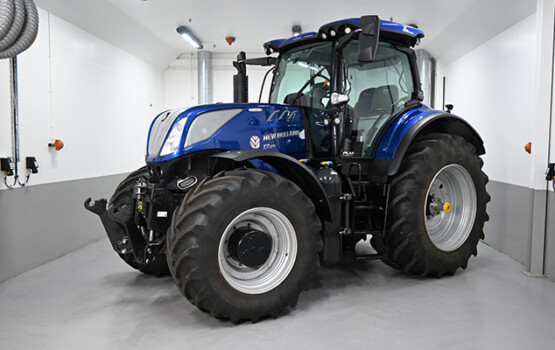Portal for more climate-friendly mobility
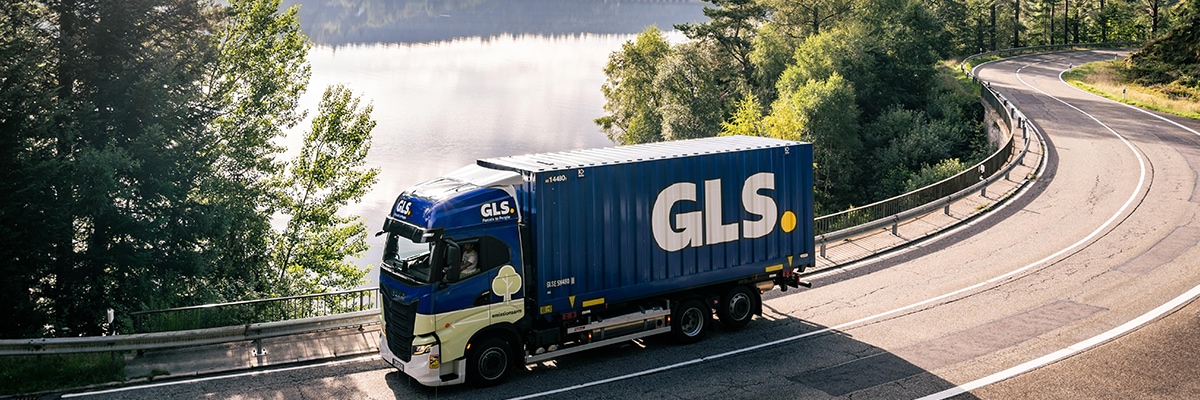
Green delivery tour with LNG
Parcel shipping is increasing as a result of online trading just as much as road traffic itself. In order to be as sustainable as possible despite this, GLS, as one of the largest parcel service providers in Europe, works with a wide range of technologies and variants. Recently, GLS Germany has also started using LNG-powered trucks.
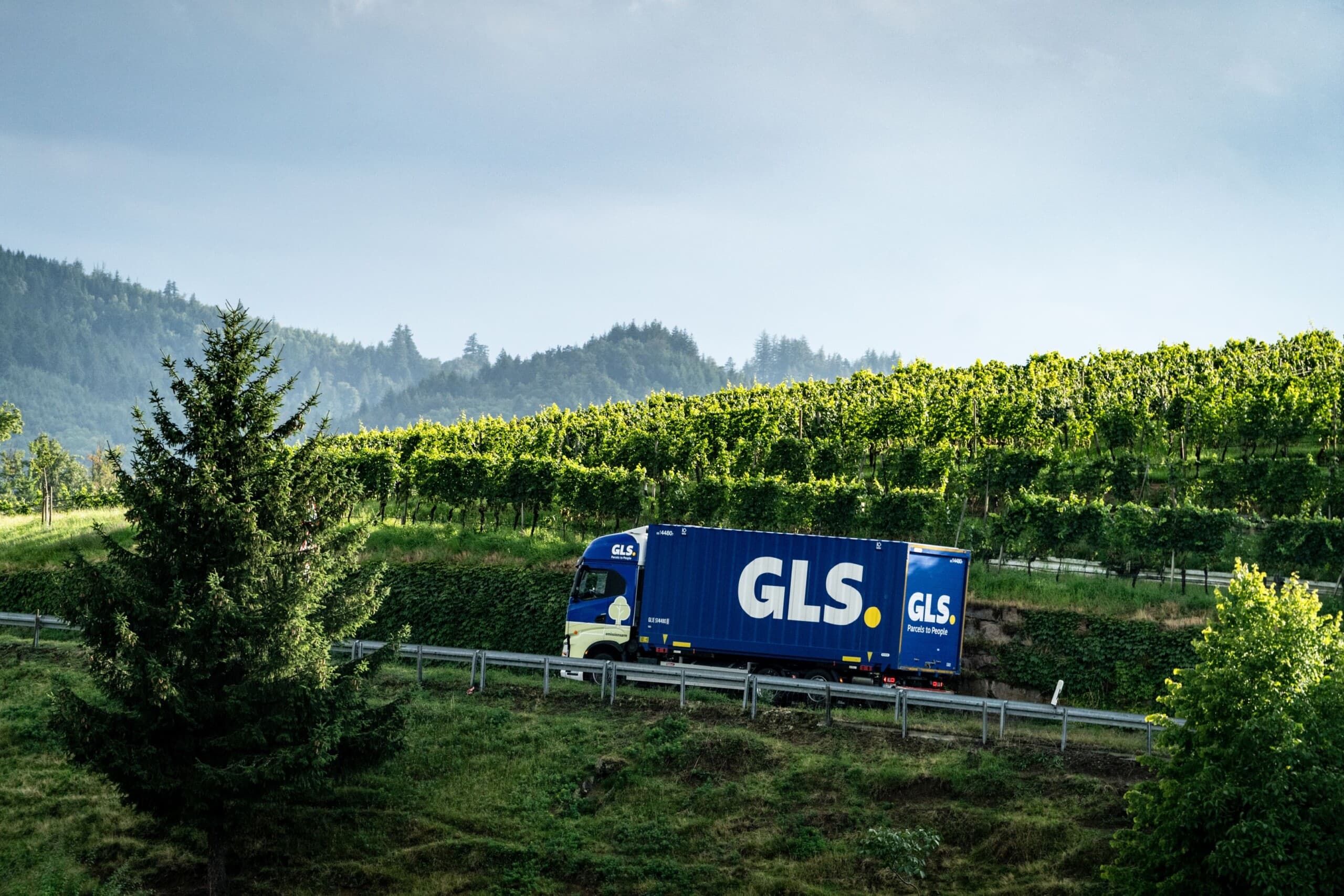 In the hills of the Black Forest and also in nearby Alsace, the LNG-powered trucks are now on the road. Source: GLS Germany
In the hills of the Black Forest and also in nearby Alsace, the LNG-powered trucks are now on the road. Source: GLS Germany
The parcel service provider GLS – short for General Logistics Systems B.V. – has been working for years to make the dispatch and transport of parcels as sustainable as possible. By avoiding and reducing as well as offsetting emissions, GLS has already been climate neutral since 2019. As part of the “Climate Protect” sustainability strategy, pilot projects are also launched time and again. For example, at the beginning of 2023, GLS transported parcels in Germany by goods trains for the first time on a significant scale.
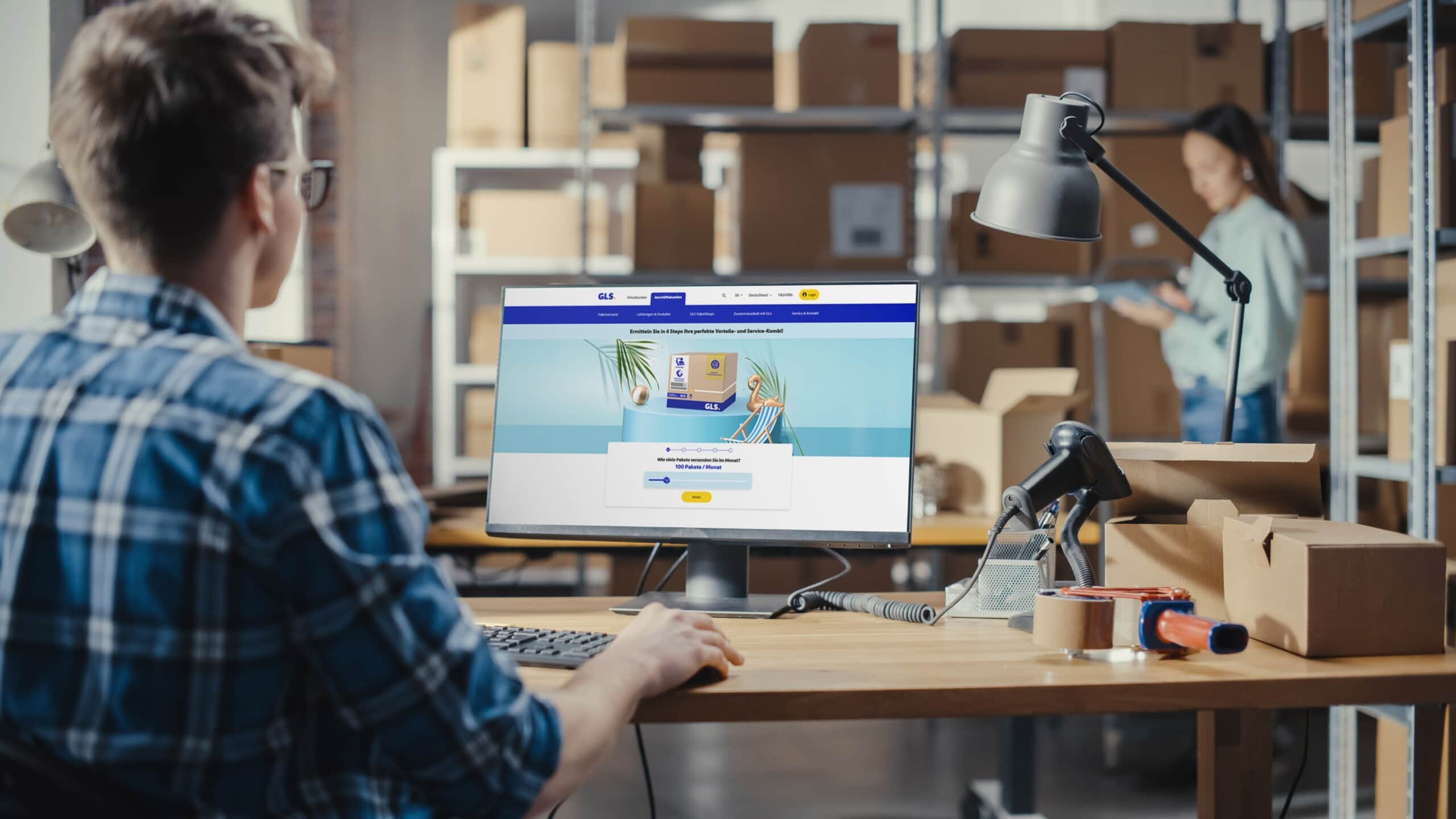 The parcel service provider GLS is focusing on the most sustainable delivery possible throughout Europe. Source: GLS Germany
The parcel service provider GLS is focusing on the most sustainable delivery possible throughout Europe. Source: GLS Germany
“The thoughts had been there for a long time, and we have worked out this pilot project accordingly,” explains the GLS regional manager responsible for Northern Germany, Melanie Menkhaus. “After smaller pilot tests in earlier years, we hope above all to gain new insights and measured values regarding the low-emission long-distance transport of our parcels.” Work is already underway to expand this to additional routes in Germany.
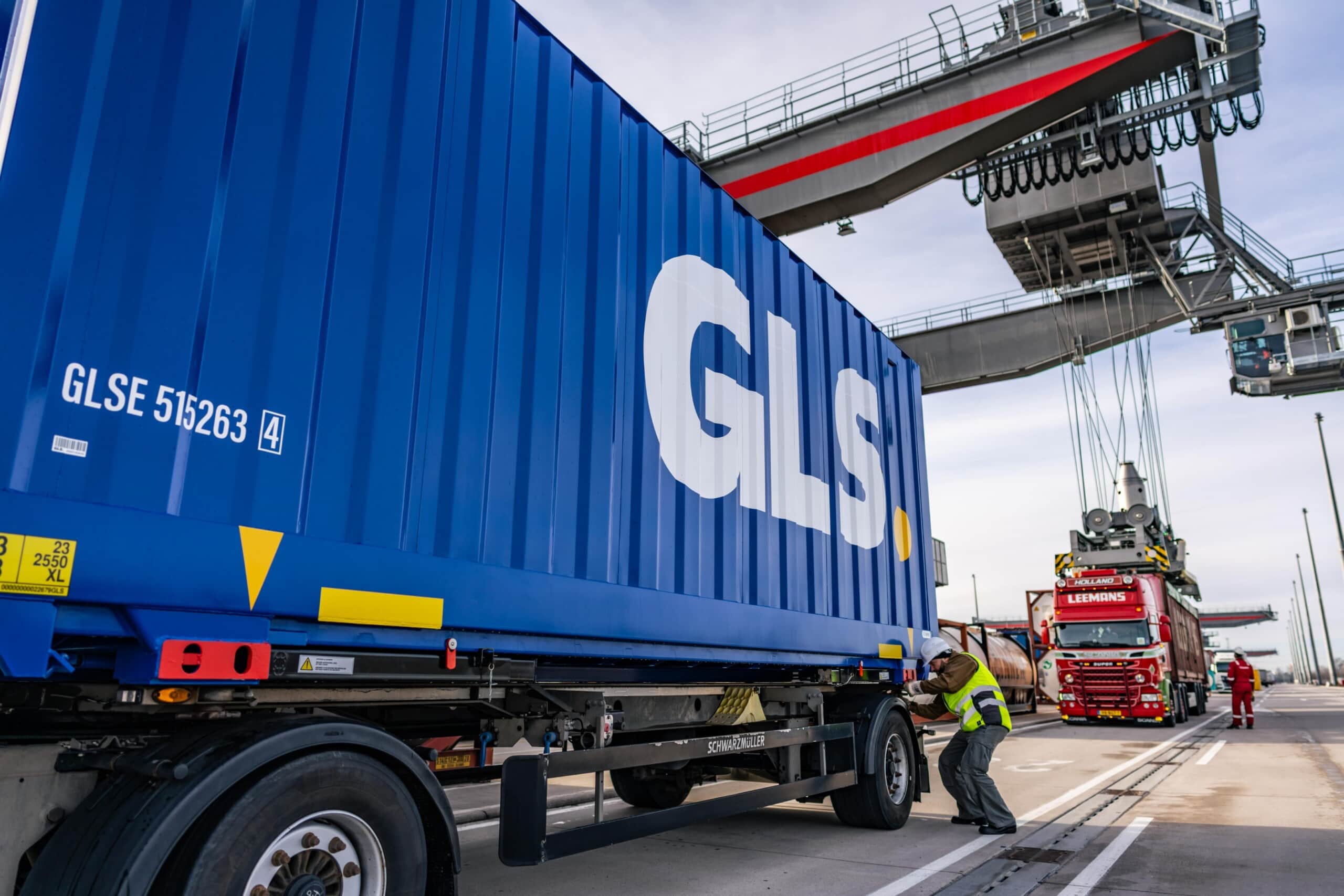 To reduce emissions in parcel delivery and thus achieve the goal of being emission-free as a company by 2045, the company also uses rail loading. Source: GLS Germany
To reduce emissions in parcel delivery and thus achieve the goal of being emission-free as a company by 2045, the company also uses rail loading. Source: GLS Germany
The shift to rail will play an increasingly important role at GLS in the future as part of its sustainability ambitions. This can save up to 80 percent of the emissions that would otherwise be produced in transport. Chief Operating Officer Achim Dünnwald explains: “The issue of sustainability is playing an increasingly important role for our customers and partners. Coupled with our own sustainability goals, we are taking this development into account, are happy to go innovative ways and are fulfilling our responsibility to society.”
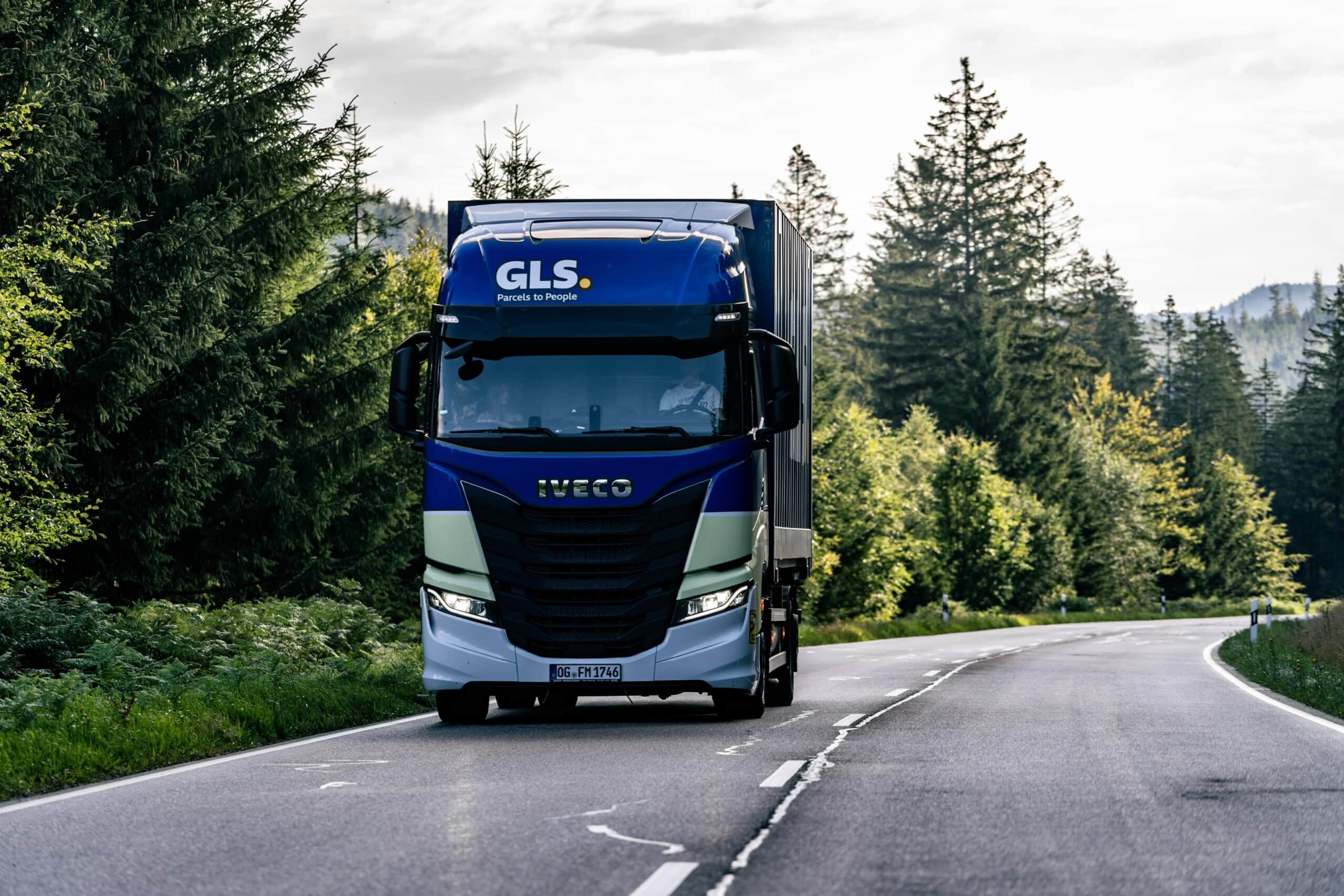 One of the four new Iveco with LNG drive now in use for GLS Germany, saving CO2 kilometre for kilometre. Source: GLS Germany
One of the four new Iveco with LNG drive now in use for GLS Germany, saving CO2 kilometre for kilometre. Source: GLS Germany
As one of Germany’s leading parcel services, GLS Germany continues to intensify its commitment to sustainability and climate protection. GLS Germany has recently demonstrated how this can also work in road transport over longer distances with four LNG-powered trucks. They complement the fleet of emission-free and low-emission vehicles. On the route between Mannheim and Offenburg, they are on the road every day as a visible sign of GLS’ ambition to use and scale sustainable transport options in long-distance transport as well. Further routes of the LNG trucks lead to the French Alsace.
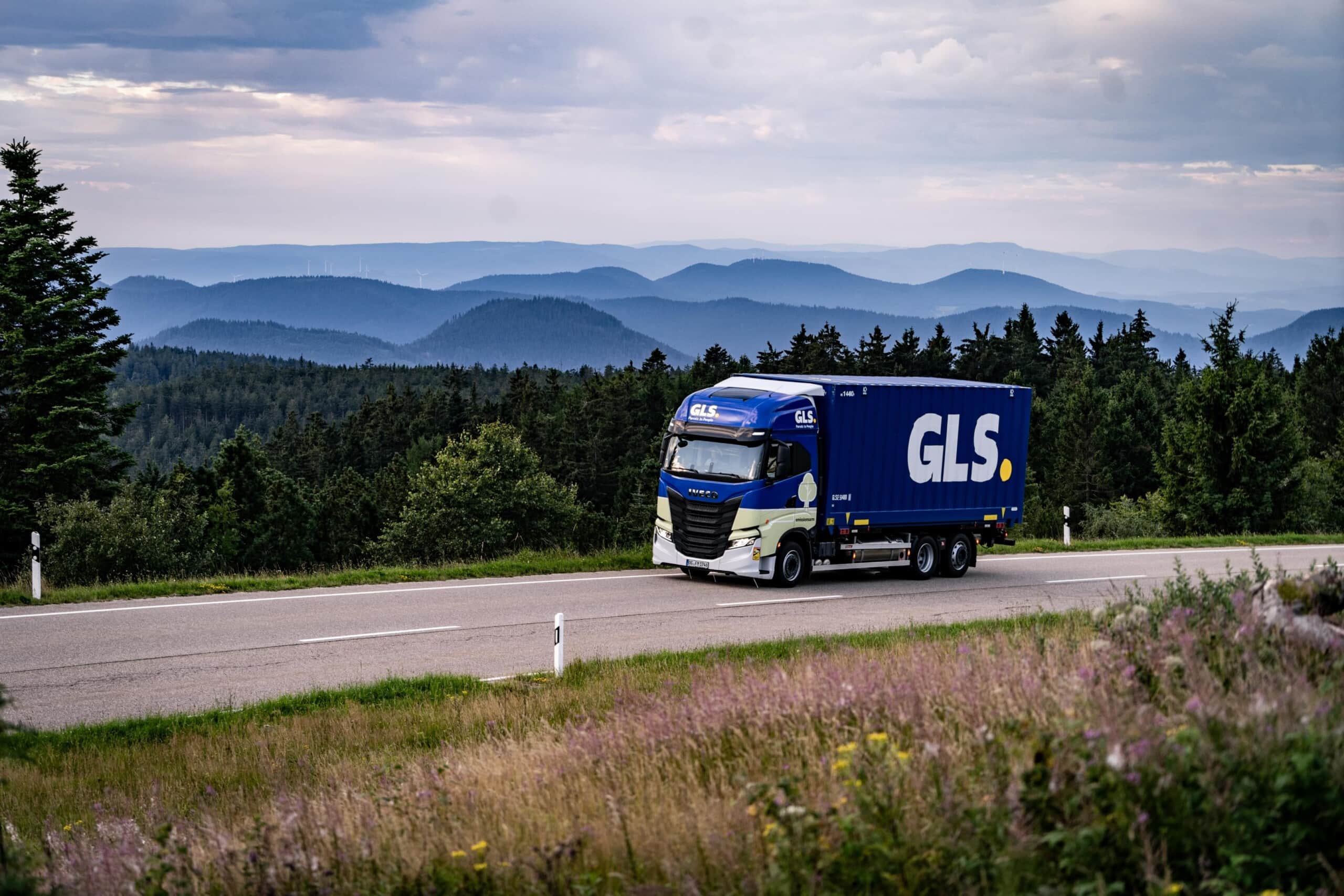 Thanks to the liquefied LNG in the tanks, the trucks have a similar range to diesel trucks, but clearly emit less CO2. Source: GLS Germany
Thanks to the liquefied LNG in the tanks, the trucks have a similar range to diesel trucks, but clearly emit less CO2. Source: GLS Germany
The use of LNG trucks is an important step towards reducing the ecological footprint: Compared to conventional diesel trucks, LNG vehicles cause up to 20 percent less CO2 emissions – and this already with conventional liquefied natural gas in the tank. If CNG or LNG vehicles can fill up with biogas and bio-LNG/LBG, they even drive almost CO2-neutral. The use of the LNG trucks is a complement to other measures taken by GLS on the last mile of parcel delivery with around 650 electric vehicles. The area-wide commissioning of micro depots and parcel stations completes the sustainability measures that are intended to help make the company emission-free by 2045.
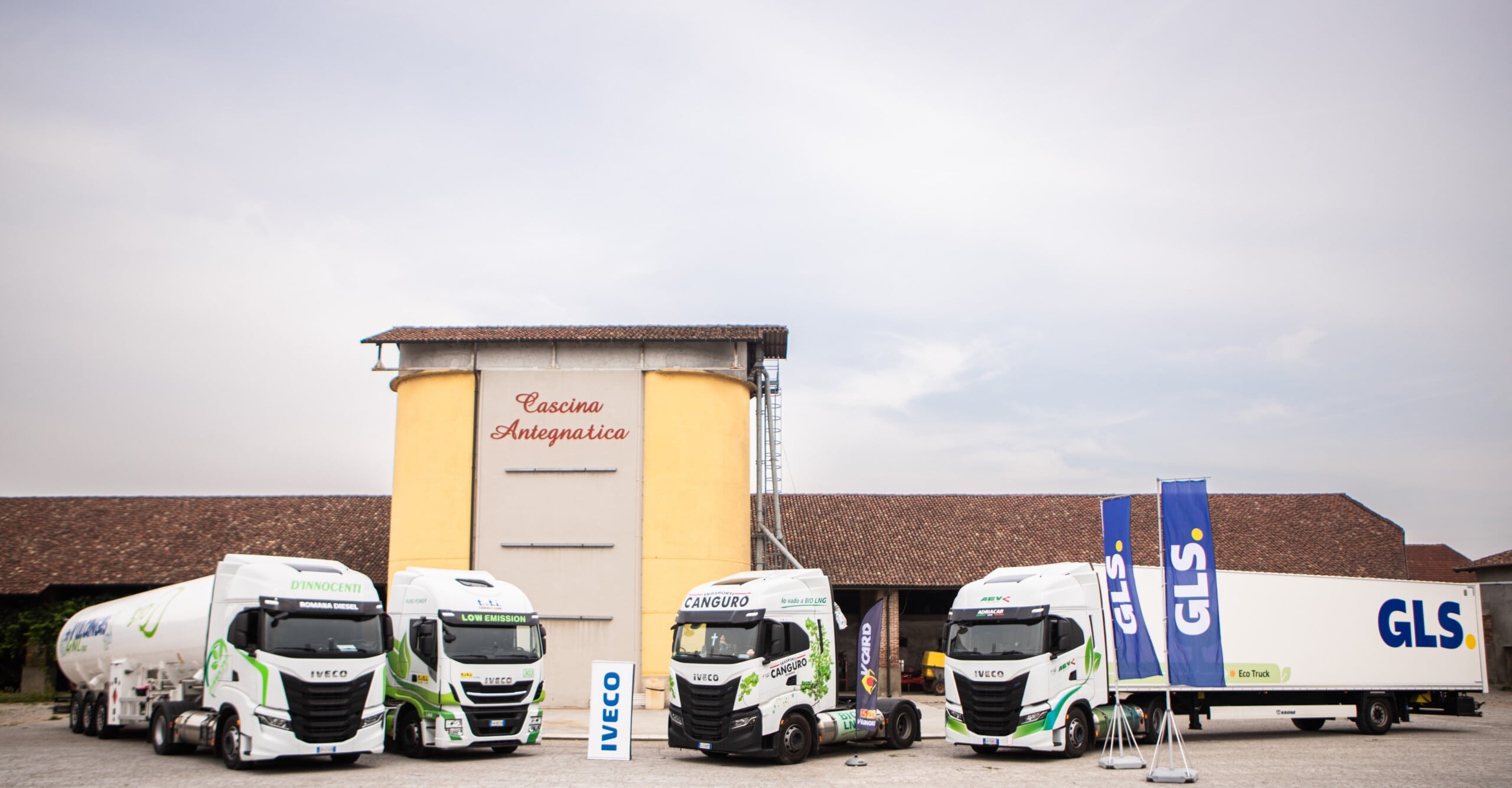 Thanks to the new biogas production facility in Cascina Antegnatica, southeast of Milan, several transport companies will in future be able to operate their LNG vehicles in a virtually CO2-neutral manner, including GLS Italy’s vehicles. Source: Iveco
Thanks to the new biogas production facility in Cascina Antegnatica, southeast of Milan, several transport companies will in future be able to operate their LNG vehicles in a virtually CO2-neutral manner, including GLS Italy’s vehicles. Source: Iveco
“With the integration of LNG trucks into our vehicle fleet, we are once again moving a step closer to this goal. It makes us proud to be able to offer our customers another environmentally friendly logistics solution,” explains GLS regional manager Uli Nägele, who is responsible for the southwest of Germany. Not only in the Black Forest, but also in Italy, GLS relies on CNG or LNG-powered vehicles for its transports. By the way, Italy’s leading express courier service is also setting a good example here, refuelling with biogas and bio-LNG wherever possible and, together with other hauliers, the truck manufacturer Iveco and the energy company Vulcangas, is also pushing ahead with the production and filling station infrastructure. (pd/jas, 31 August 2023)
You might also be interested in
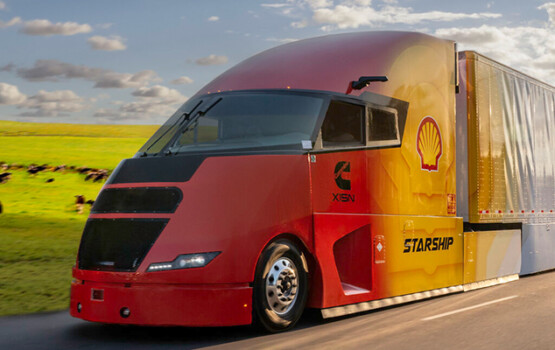
Shell Starship on record hunt
